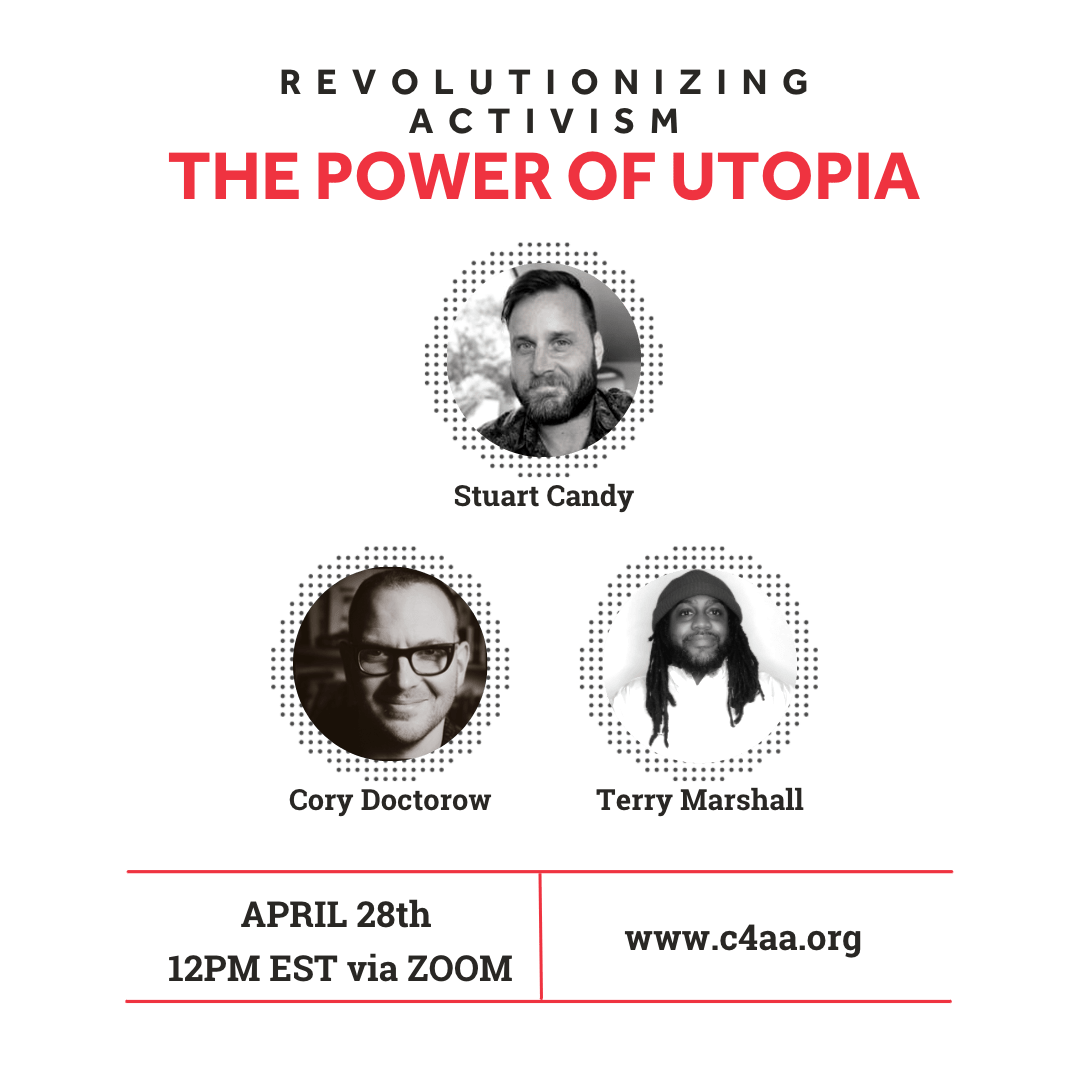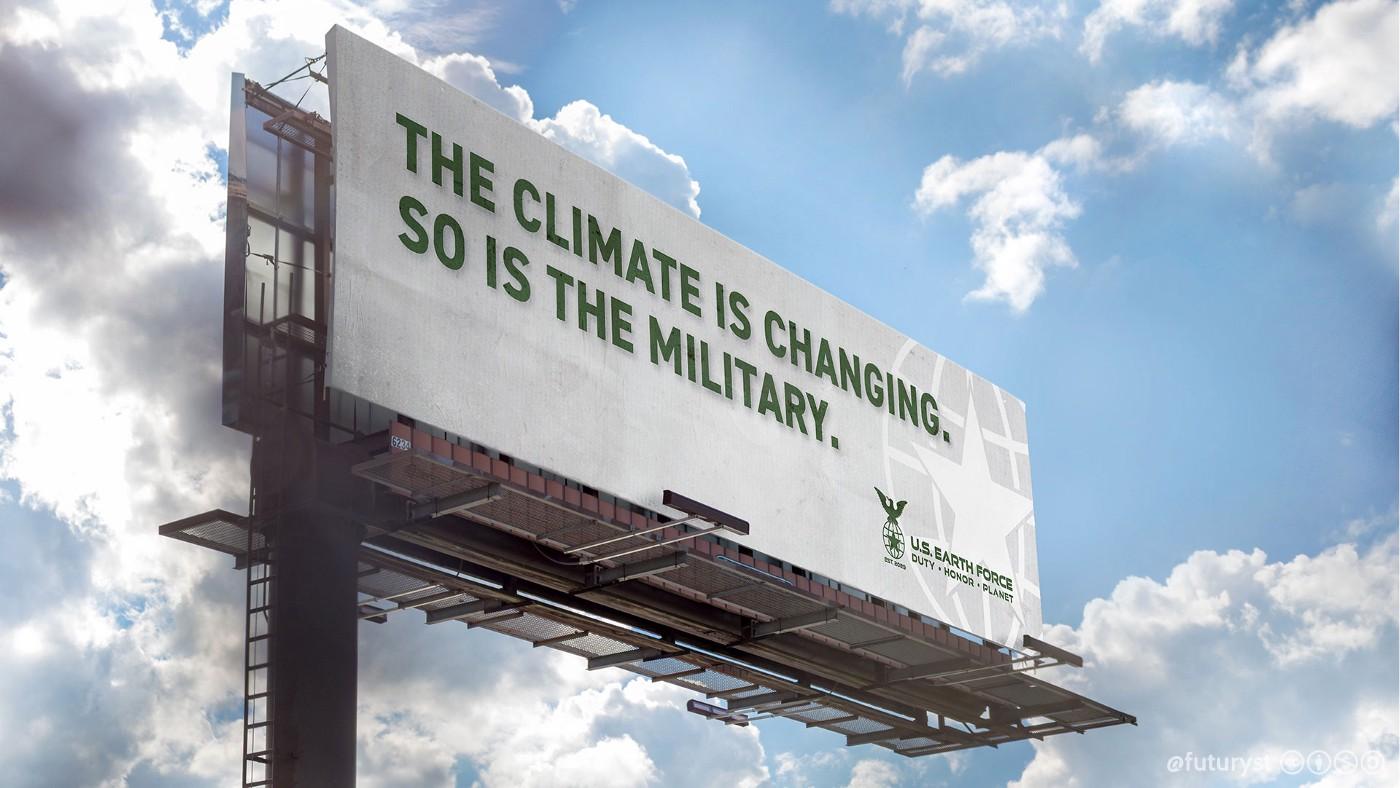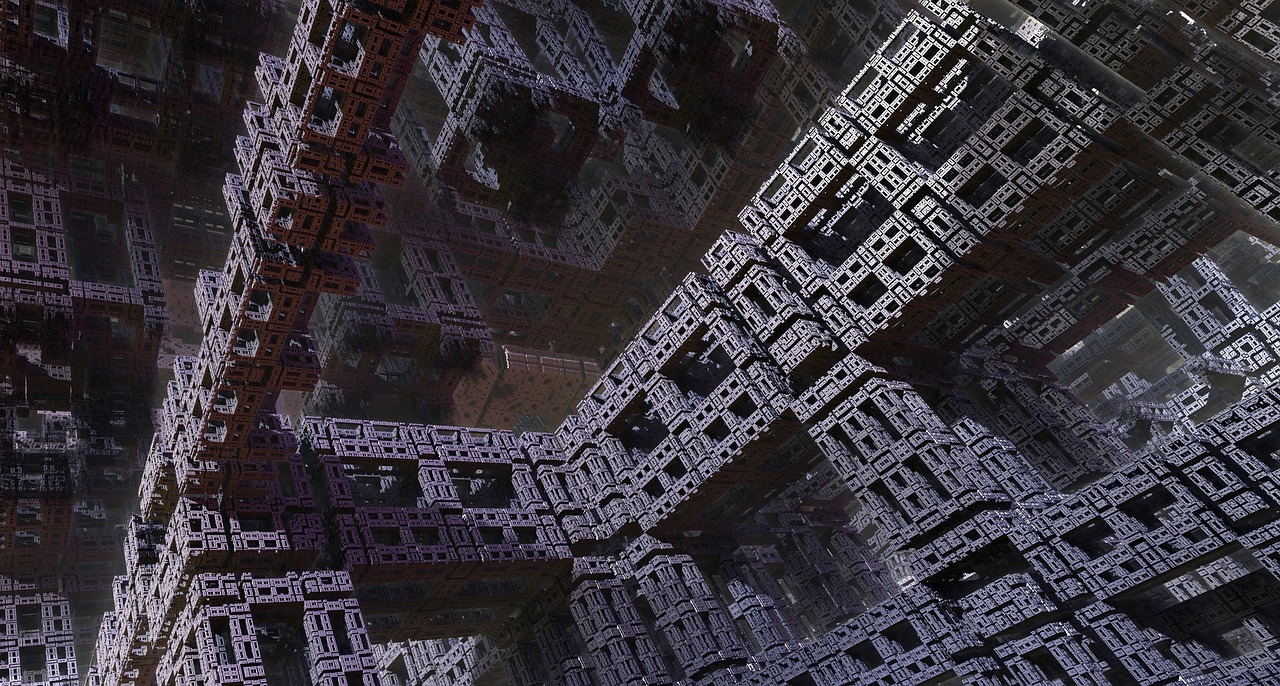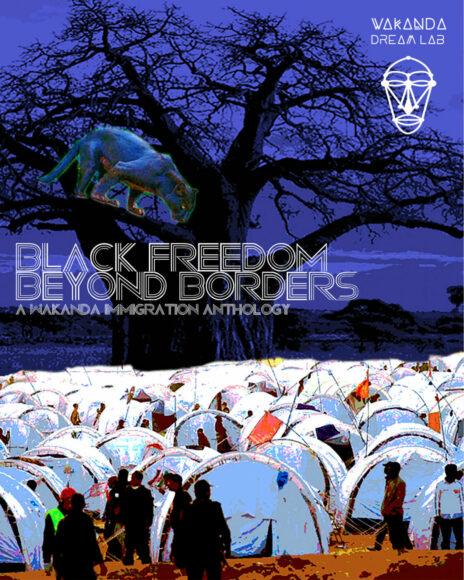
To be an effective activist you need to:
Get specific!
No. Think big!
So, which one is it?
Well. Both!
Activism often benefits from working towards “small” and concrete goals. Especially when seemingly localized campaigns like the call for DC Statehood can have a great impact on the entire country.
Yet whether legislative or policy-oriented, most people outside of advocacy tend to be unfamiliar with proposed or existing laws and attempt to shift policy, even if it has a huge impact on their lives. So how do we connect with them? And how do we translate concrete goals into messages that reflect the bigger picture and actual core vision of these goals?
The good news is that as creative activists, we’re in the best position to inspire people by expanding our vision– to both imagine and get specific about the change we want to see and make. To name what is often discounted as unrealistic, idealistic, impossible, and BIG- our utopia.
Join us for the next edition of Revolutionizing Activism on April 28th at 12pm EST, as we explore The Power of Utopia and its generative potential for developing and carrying out actions. Moderated by Stuart Candy, Associate Professor in the Carnegie Mellon School of Design, and featuring best-selling science fiction author Cory Doctorow, and Terry Marshall of Intelligent Mischief, come and hear what these dynamic minds have to say about utopia’s potential for the present and the future.
Here’s More About Our Panelists…
For a word often used to describe an ideal, utopia can be thrown around as a dirty word – as a useless distraction from reality. How many times have you heard people say something like “the present world can’t be a utopia, so let’s get real”?
Guerilla Futures: “It’s better to be surprised by simulation than blindsided by reality”
That’s one of Stuart Candy and Jake Dunagan’s favorite aphorism’s about enacting utopia in the present. Through Guerilla Futures, the duo ”designs situations that help us understand possible futures by visiting them.” For the World Bank’s Climate Investment Funds and Institute for the Future, through the Carnegie Mellon University Situation Lab, Candy created a future advertising campaign that asked: “what if, in the late 2020s, climate inaction gave way to large-scale military mobilization?” You can read about his other designed “artifacts from the future” here.

Intelligent Mischief: When Logic Hides Reality
Founded by Terry Marshall and Aisha Shillingford, Intelligent Mischief, is a creative studio and futures design lab unleashing Black imagination to shape the future. Through play and innovation, Intelligent Mischief’s projects unsettle the binary between dystopia and utopia, particularly in the context of racism in the United States.
Their project Wakanda Dream Lab is a collective fan-driven project that bridges the worlds of Black fandom (of the Marvel comic books and the recent Black Panther film) and #Blacktivism for Black Liberation. Through publications, labs, and workshops, Wakanda Dream Lab “builds on the aesthetics and pop-culture appeal of Wakanda to develop a vision, principles, values, and framework for prefigurative organizing for a new base of activists, artists, and fans for Black Liberation.”
Cory Doctorow: “Utopianism is not the assumption that nothing will go wrong.”

Best-selling science fiction author, journalist, and activist Cory Doctorow writes of the near future in novels that have explored police brutality, immigration, radicalization, and technology– tales that can often read as though they’re describing the present.
Doctorow contends that utopia isn’t about a stagnant ideal, but rather an action – “being hopeful and utopian means believing that when things break down, we can rebuild them. One of the things we’re living through right now is people acting as though we have lost, as a species, the ability to weather big global crises, like we want to build the pyramids with Egyptian technology or something. Like it’s the practice of a lost civilization that we will
Utopia Tango
The power of Utopia lies in its ability to be possible and impossible, real and unreal, all at the same time.”
— Steve Duncombe and Steve Lambert
The Art of Activism
The Art of Activism’s deep dive into utopia underscores that it can be applied, practiced, experimented with, and enacted. According to Steve and Steve – utopia is about movement and reaching– and knowing that once we achieve anything, it’s time to reach again. Utopia inspires a tango that can be extremely productive and generative for activists and artists. It’s also fun! Utopia charts a path toward literalizing the change we want to see in the world and embedding it in our current reality. We don’t expect a utopia to fit perfectly in the present, and that’s the point.
Blast From the Past: Utopia in the News
Remember the 2008 presidential election? One week after the election, a newspaper hit the streets with the surprising headline: “IRAQ WAR ENDS.” Watch the video and click here to learn more about the “New York Times Special Edition Project.”
“After the 2008 election of Barack Obama much of the United States population was excited about the future for the first time in years. With the Special Edition, we wanted to find a way to celebrate what we wanted, rather than criticize what we didn’t. We wanted to create our own vision instead of responding to others.”
— Steve Lambert
What are your thoughts about utopia and its potential for advocacy? Register for April 28th’s discussion to join the conversation!





You must be logged in to post a comment.